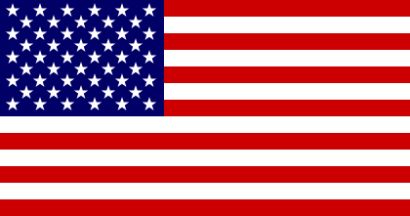

All of the following phrases or words are wrong or often used wrongly:
WRONG: One more please?
Students ask me this question when they want me to repeat a conversation I've just read from the textbook.
CORRECT: Could you read it again?
Could you repeat that? (If you can't hear a word or sentence.)
WRONG: I couldn't catch.
Students say this when they can't answer a question about text I've just read.
CORRECT: I didn't hear.
I couldn't catch that information.
WRONG: I have to finish the report until Monday morning.
CORRECT: I have to finish before Monday.
I have until Monday to finish the report.
WRONG: My landlord claimed me because my music was too loud.
CORRECT: My landlord complained because my music was too loud.
WRONG: Almost Japanese like soccer:
"Almost" can be used in two ways. It means "nearly," but used with "all," or "all of," it means "nearly all," or "most." Almost = nearly. Almost all = 90%-99%:
CORRECT: I almost scored a goal.
Almost all Japanese like soccer.
WRONG: Please teach me your phone number:
We don't use "teach" to talk about giving simple information like phone numbers or addresses. Usually "give" is the proper word, but "tell" can also be used. "Teach" is used to talk about learning how to do complex things like to speak English or to ski.
CORRECT: Can I have your phone number?
What's your phone number?
Teach me how to use the internet.
Tell me your phone number.
Give me your phone number.
WRONG: Two weeks later; in two weeks:
When talking about the past, use: after that; later
CORRECT: I started studying English in 1998. A year after that, I quit.
We moved to LA in 1995. A year later, we moved to Phoenix.
When talking about the present (now), use: in
CORRECT: I'm going to be transferred in a year.
When talking about the future use: after that
CORRECT: I'm going to graduate next year, and a year after that I'm going to get married.
WRONG: I cleaned my room.
CORRECT: I cleaned my apartment.
WRONG: There are two persons talking in this picture.
This is wrong because we don't use "person" in the plural. Use "people" instead.
CORRECT: There are two people in my family.
WRONG: I'm a safety driver:
"Safety" is a noun. In this situation, we use the adjective form: "safe".
CORRECT: I'm a safe driver.
WRONG: I recommend you to Kyoto:
CORRECT: I recommend Kyoto.
I recommend you go to Kyoto.
I recommend buying a yukata.
WRONG: I will go to Hawaii next month:
"Use (be) going to" to talk about plans you've made.
CORRECT: I'm going to Hawaii next month.
I'm going to go to Hawaii next month.
WRONG: I'm working for Sony. (I just started. I might quit soon.)
I'm living in Hakusan.
Using "verb + ing" (the present progressive) implies a new or temporary situation.
CORRECT: I work for Sony.
I live in Hakusan.
WRONG: What is your hobby?:
CORRECT: What are your interests?
What do you do in your free time?
What do you like to do?
WRONG: I married last year:
Use the verb "to get married." Also, "to get divorced.")
CORRECT: I got married last year.
WRONG: I'm an office worker:
This is strange because it's so vague. There are many, many office jobs. Give more specific information.
CORRECT: I'm a manager at an import/export company.
I'm a secretary.
WRONG: The weather is fine.
"Fine" in this sentence doesn't mean "clear" or "beautiful," it means "ok."
CORRECT: The weather is great.
It's a beautiful day.
It's sunny.
WRONG: Have you ridden the jetcoaster at La Qua?
"Jetcoaster" isn't a word in English. Use "rollercoaster."
CORRECT: Have you ridden the rollercoaster at La Qua?
WRONG: Do you know sumo?
Usually we use "know" to refer to a person or school subject.
CORRECT: Do you know Japanese?
Do you know about sumo?
Have you heard of sumo?
WRONG: Ichiro is the strongest baseball player in the American League.
"Strong" generally means "muscular." Use "best."
CORRECT: Ichiro is the best baseball player in the American League.
WRONG: I have to back the videos to the video store.
"Back" is not a verb. Use "return."
CORRECT: I have to return the videos to the video store.
WRONG: Sushi is very delicious.
Words like "delicious" are very strong and don't need the word "very."
CORRECT: Sushi is delicious.
WRONG: Stewart's English lessons are very difficult.
Actually, this isn't wrong. "Difficult" is ok, but Americans use "hard" most of the time.
CORRECT: Stewart's English lessons are very hard.
WRONG: I'll explain you how to
WRONG: I'm sorry to late.
WRONG: She is very smart.
WRONG: I'm going to leave during.
WRONG: If you are possible.
WRONG: I have ever been to Hawaii.